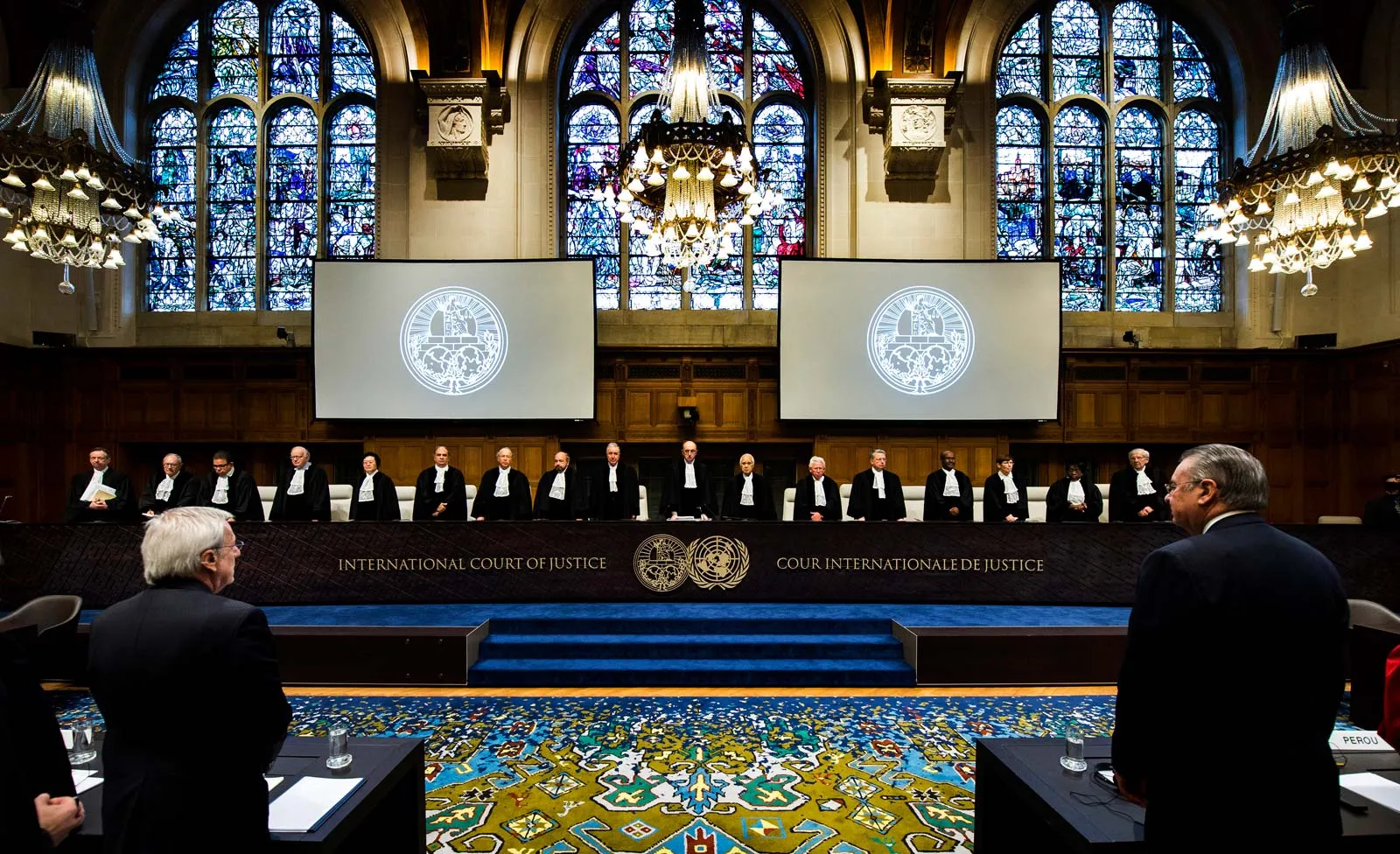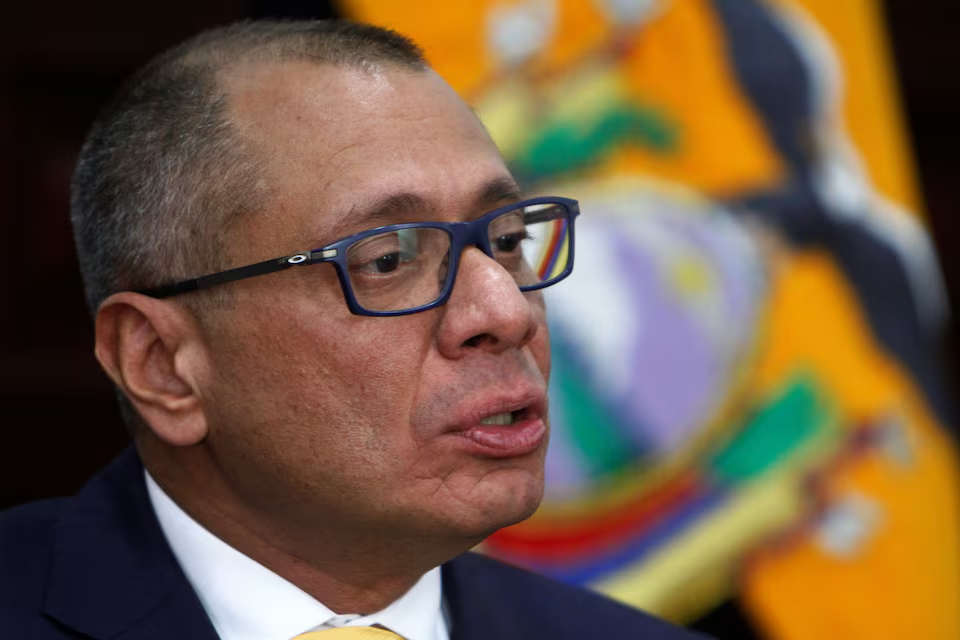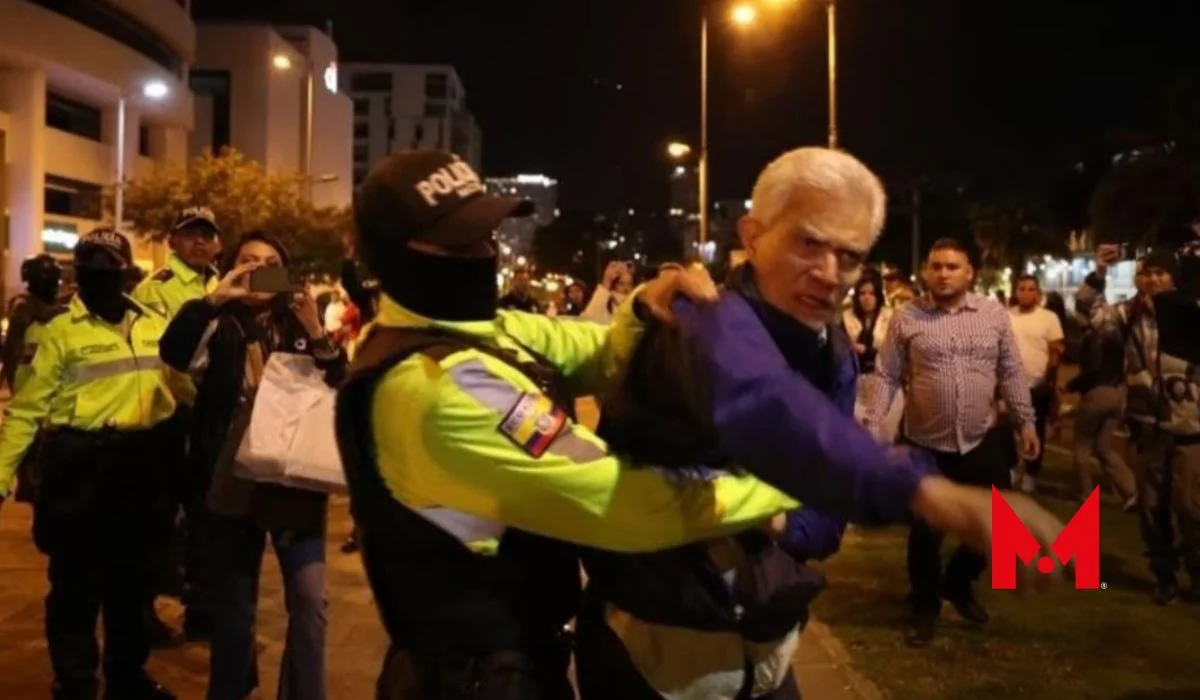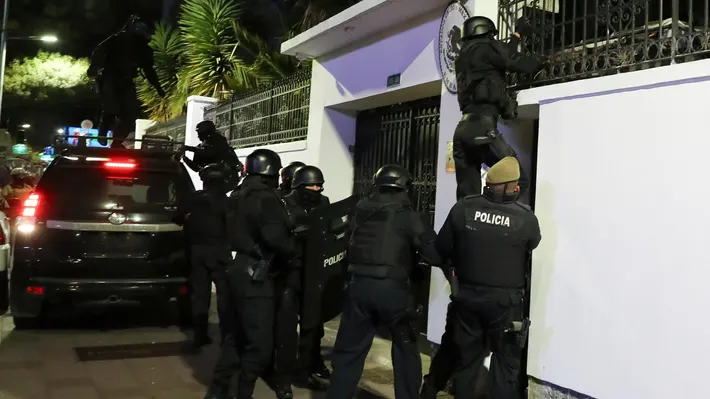The International Court of Justice (ICJ) released a statement on Thursday stating that an official date for a court hearing regarding Ecuador’s storming of a Mexican embassy has been scheduled.
A Date Established:
This follows Mexico’s original filing last Thursday, where the Mexican government alleged that Ecuador violated international law by storming the nation’s embassy in order to arrest former Ecuadorian Vice President Jorge Glas, who was previously convicted on two charges of corruption.
The hearings are set to take place on April 30th and May 1st and will cover Mexico’s request for provisional measures against Ecuador, with Mexico leading the debate on the 30th while Ecuador will be able to respond the next day.
The proposed provisional measures include requiring the Ecuadorian government to take steps to “provide full protection and security of diplomatic premises, their property, and archives, preventing any form of intrusion against them,” allowing the Mexican government to clear both diplomatic grounds and private residences owned by diplomatic agents, preventing the Ecuadorian government from attacking the rights of Mexico, and requiring Ecuador to refrain “from any act or conduct likely to aggravate or widen the dispute of which the Court is seized.”
The Mexican government has requested that the final ruling declare Ecuador in violation of international law, suspending a South American nation from the UN, requiring Ecuador to make “full reparation” to Mexico, and setting a precedent that the ICJ will be the future ruling body in similar disputes, as well as providing a precedent of expulsion from the UN if national authorities enter a foreign embassy without the consent of the embassy.
A Budding Court Case:
Mexico claimed in its official filing with the ICJ that the raid follows “a series of continued
acts of intimidation and harassment” after Glas arrived at the embassy, which included “constant police presence around the Mexican Embassy” since the arrival of Glas.
Mexico further pointed towards the declaration of Ambassador Raquel Serur Smerke, Head of the Mexican Embassy, as persona non grata, requesting that the ambassador leave Ecuador “soon.” Mexico then claimed that following this declaration, police presence around the embassy increased further, which led to “the surveillance and harassment towards members of the mission” being enhanced.

Mexico then documented a number of cases of harassment, which included the Deputy Chief of the Diplomatic Mission being followed by a “suspicious vehicle” only for his pursuers to flee when confronted, a military vehicle parked nearby the embassy, which Mexican officials claim to be used to prevent cellphone communications, and a case where an embassy worker was followed by police, prompting the worker to return to the embassy in fear of her security.
Mexico further claimed that “Ecuador has violated Mexico’s rights under customary and conventional international law, as well as fundamental principles upon which the international legal system is based,” demanding full reparation and “to suspend Ecuador as a member of the United Nations.”
The case follows a raid conducted by Ecuadorian authorities on the Mexican embassy in order to carry out a warrant for the arrest of former Ecuadorian Vice President Jorge Glas, who was convicted on two charges of corruption.
Following the conviction, Glas fled to the Mexican Embassy in December to apply for asylum. In an application, Ecuadorian authorities claim to be illegitimate, claiming that Glas was targeted due to his criminal conviction and was not political.

The Mexican Foreign Ministry released footage of the arrest of Glas on April 9th, which shows authorities breaching the embassy and carrying out a search of the premises before having multiple altercations with Mexican Ambassador Roberto Canseco.
Mexico stated in their filing that these altercations “undermined his (Canseco’s) dignity” and led to “injuries to his arms, legs, face, back, and neck, as well as psychological harm.”
Following the raid, Mexico broke all diplomatic relations with Ecuador, recalling its embassy staff, who returned to Mexico on Sunday. However, Ecuador’s ambassador to Mexico was allowed to remain in the nation, with Mexico reaffirming its commitment to providing legal guarantees in accordance with articles 44 and 45 of the Vienna Convention on Diplomatic Relations.

After his arrest and transfer to Ecuador’s infamous “La Roca” prison in Guayaquil, Glas was found unconscious in his cell, forcing authorities to transport him to a nearby military hospital. The National Service for Comprehensive Attention to Persons Deprived of Liberty, the organization that is in charge of administering Ecuadorian prisons, stated that Glas had passed out from lack of sustenance after refusing to eat for 24 hours.
Following his loss of consciousness, Glas received treatment from the Ministry of Public Health before being transferred to a health home in southern Guayaquil.
The Sovereignty of Embassies:
Both analysts and specialists have expressed concern over Ecuador’s raid, claiming that this violation could lead to further incursions by hostile governments into the embassies of foreign states. The embassy of foreign nations acts as that nation’s sovereign territory, while a forced entry by armed authorities could be seen as an invasion into Mexican territory, which could lead to dire consequences for the South American nation.

While entire raids are rare, there have been a number of cases relating to governments attempting various other methods in order to arrest individuals or otherwise interfere with diplomatic. In March, the Venezuelan government surrounded the Argentine embassy after members of the nation’s major opposition party, Vente Venezuela, fled to the embassy to apply for political asylum after authorities issued warrants for their arrest.
This led to a days-long siege, which culminated in the cutting of power, water, and other essentials by what one Vente member claims were state workers.


